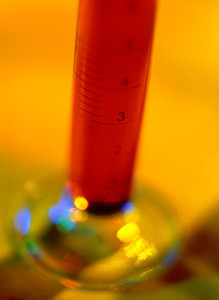Copaxone (glatiramer acetate) is generic’s giant Teva Pharmaceutical Industries’ proprietory multiple sclerosis (MS) treatment, which netted the company Euros 1.17 billion in the first half of 2010. This success story, however, is now tainted with allegations that Teva performed an unethical clinical trial.
Teva bruised in Copaxone fight
Home/Pharma News
|
Posted 29/10/2010
 0
Post your comment
0
Post your comment

Teva and ProNeuron Biotechnologies, a young biotechnology company, entered collaborative arrangements in 2001. Teva owns 13.3% of the start-up. Under the agreement, Teva was to conduct a well-planned trial of Copaxone for the treatment of amytrophic lateral sclerosis (ALS), also known as Gehrig's Disease.
Round 1 to ProNeuron
ProNeuron alleges that Teva was negligent in the trial of Copaxone and last year the Israeli Supreme Court decided that it was in the public interest to hear the dispute in public in view of ProNeuron's serious claims against Teva. The ruling overrules the agreement, which stipulated settlement of any disputes by arbitration.
Israel's health ministry appointed a special committee to probe the trial of the MS drug. An internal investigation by the health ministry's comptroller found that the company did not submit all the necessary information before trial approval.
The trial at the centre of the debate was conducted at Tel Aviv's Ichilov Hospital from November 2006 to November 2007. It involved 13 patients with ALS, a fatal neurodegenerative disease affecting the motor neurons. It sought to test whether Copaxone, which is indicated for MS, could also help patients with ALS.
Round 2: trial patients also sue
ProNeuron's lawsuit alleges that according to preclinical data in the possession of ProNeuron and Teva itself, the clinical trial Teva conducted was doomed to fail. Teva deliberately sabotaged the trial, to the point of jeopardising patients' lives.
Patients who took part in Teva’s testing of its flagship drug Copaxone are now also suing the generic drug giant, demanding it reveals the results of the trial. Teva has refused.
Three participants filed a suit against Teva and Ichilov Hospital in January, saying they were asked to participate in the research without receiving relevant information. Ultimately, they learned that the trial had no solid basis, they argue.
Teva had offered a compromise in which the company would hand over the “confidential” documents if the plaintiffs were sworn to secrecy. The plaintiffs, however, rejected this, saying that it is merely an attempt to hide embarrassing aspects of the trial. “Teva's entire goal is to keep the public from knowing,” attorney Ahuva Ticho, who represents the patients, told the court.
Battle not over
Meanwhile in September 2010 Teva succeeded in fighting off a legal action in the US, blocking generic competition against Copaxone from Sandoz/Momenta. The company has also filed a complaint against Mylan for infringement of patents which should protect Copaxone until 2020.
So the Copaxone battle is not over for Teva and it does not look likely to end soon.
Related articles
FDA rejects second citizen petition for Teva’s glatiramer acetate drug
References
Teva Press Release. Teva and Proneuron Biotechnologies Entered into an Agreement to Develop glatiramer acetate for Multiple Neurodegenerative Diseases. 4 December 2001
Proneuron Biotechnologies Company News. Proneuron Biotechnologies and Teva Pharmaceutical Industries Sign Agreement to Develop Glatiramer Acetate for Neurological Diseases Business Editors and Health/Medical Writers. 4 December 2001
Proneuron Biotechnologies Company News. Proneuron Alleges Unfair Co-Licensing Behavior by Teva. 14 July 2008
Teva Press Release. Court Denies Sandoz/Momenta's Summary Judgment of Invalidity in Copaxone® Litigation. 7 September 2010
Haaretz Newspaper in Israel. Gehrig's patients demand Teva reveal Copaxone test results. 12 September 2010
Teva Press Release. Teva Files Complaint against Mylan for Infringement of Four Copaxone®-Related Patents. 21 September 2010
Guidelines
US guidance to remove biosimilar comparative efficacy studies
New guidance for biologicals in Pakistan and Hong Kong’s independent drug regulatory authority
Policies & Legislation
EU accepts results from FDA GMP inspections for sites outside the US
WHO to remove animal tests and establish 17 reference standards for biologicals
Formycon signs new aflibercept biosimilar pacts and launches ranivisio in Europe

Home/Pharma News Posted 13/11/2025
Bio-Thera and Stada expand biosimilars alliance to include tocilizumab

Home/Pharma News Posted 20/10/2025
The best selling biotechnology drugs of 2008: the next biosimilars targets








Post your comment